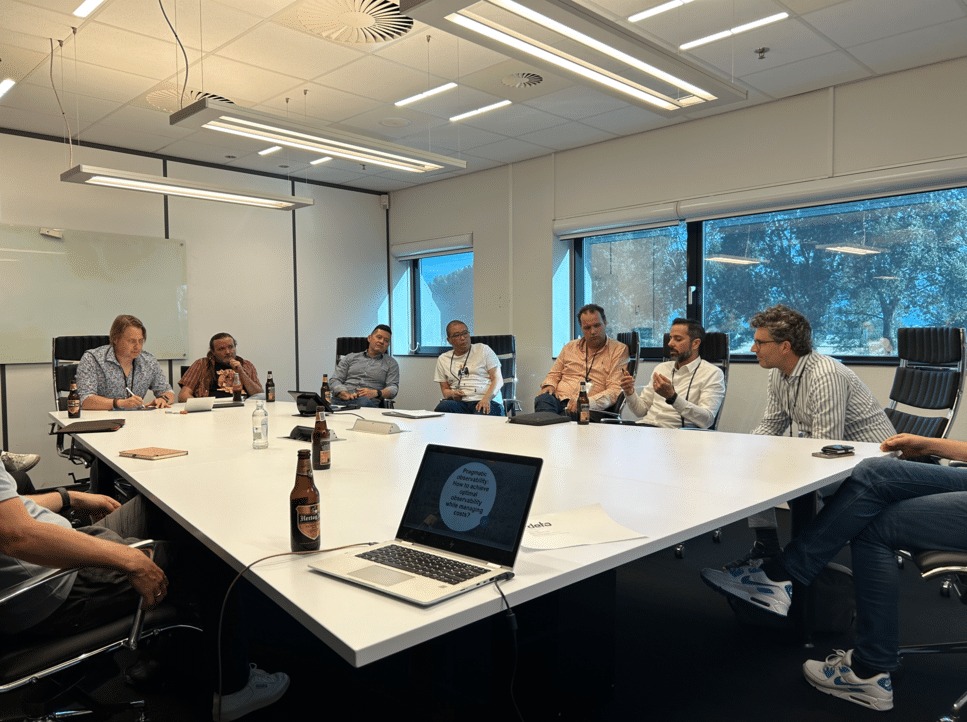For many, the move into freelancing opens them up to a wide range of opportunities that permanent roles can’t offer. It is often borne out of the desire for increased autonomy, higher pay, and the ability to pick and choose what you work on. Although not for everyone, if you’re here the chances are you’ve decided it is in fact for you.
Simply making the decision to become a freelance Salesforce consultant is not enough.There’s the practical things to consider – like actually finding work for one. The good news is that there are an ever-increasing number of Salesforce Consultant roles flooding the market. But you will still need to put some consideration into going freelance in order to clinch those jobs that you really want.
Here’s our checklist of how to get your freelance Salesforce consultancy business off the ground:
Determine your availability
One of the biggest misconceptions about freelancing is that you just sit around, and work comes to you. Whilst this isn’t entirely untrue in the world of Salesforce – what with the increasing popularity of the platform, and the relative lack of skilled employees – it is important to understand how much time you can dedicate to freelance jobs. Is this something you want to pursue alongside your regular day job? Will you take on multiple projects at a time – and if so, how much time will each project require? Or, will you take on one role for a contracted period of time? Deciding how much time you want to dedicate to freelance Salesforce consultancy will enable you to quickly shift through the numerous job roles on offer and find the one that suits your requirements and capabilities.
Find your value
Perhaps one of the hardest parts when moving into freelance is knowing where tor value yourself, and working out how much you’re going to charge, either as a flat- project-based free, or as a daily rate. The key advice here is to do your research and get a sense of the going rate for a freelance Salesforce consultant with your experience, in your preferred industry, and in your location.
Whilst there is no sense in charging a lot more than the industry standard, if you can justify your rate with skills, expertise, certifications, or anything else that makes you stand out as a unique consultant, then go for it.
Businesses are actively looking for individuals to fill these roles, and with increased need comes increased power to charge what you deem necessary (within reason). However, it is important to remember that building up a reputation as a freelancer is more important than immediately gaining high-paying clients; if you start with reasonably-charged work and build up your network of clients then it becomes much easier to justify higher charges further along the line.
Legals are key
I’m not a lawyer but, generally, if money is going to be changing hands, you want to make sure everything is in writing. Whether it’s a rock solid contract provided by a client, or a purchase order for one off pieces of work, having a paper trail that includes: your hourly rate, what you will be paid for (time, materials, travel etc), invoice frequency and due date, general timelines, a short description of the work that is going to be done, and termination language will ensure you don’t run into difficulty at the end of your work.
Make sure you have registered with HMRC as soon as you’re up and running – this is an essential step and getting organised now will prevent any lengthy call times with the HMRC helpdesk when you’re having to declare in April.
Get the right kit
Although there’s not much you need to become a freelance Salesforce consultant, there are a few tools that will certainly make your job easier. The key ones being for expenses and hour tracking. Both Harvest and Timely are great tools for tracking time and activities.
Harvest allows you to track two active projects and enables you to categorise time into any service or task. It also provides professional looking invoices and services for you to issue to clients. Timely can track up to three projects and allows you to schedule work in advance in order to create an estimate.
Either tool can be used to quickly and easily manage your own time and bill your client accordingly, and can make that transition into freelancing – and potentially working multiple projects at once – that little bit easier.
Sell yourself
One of the most important things when you’re considering going freelance as a Salesforce consultant is building up your personal brand. After all, this is half of what potential clients will judge you on.
Ensure you have built out your profile on LinkedIn, and any other social media sites you deem necessary (Twitter, Quora, MeetUp etc). Make sure the content on these sites is selling both yourself and your skills – you need people to buy into your expertise and knowledge when they find your page, but how you represent yourself online is also reflective of your professionalism.
Share relevant news and articles, attend events, and build up a picture of yourself that will make clients trust you as a freelancer.
Phone your friends
You never know who someone might know. So, when you first start freelancing – or even when you first start considering it – contact everyone. Let them know when you are available for work from and ask that they share the message with their wider network.
Referrals and friends are your best bets for landing your first gig, and it is never too late to start reaching out and expanding your network through mutual friends. Even though someone may not require freelance Salesforce consultancy now, there’s a high chance they will in the future.
Start the job search
Now that you have anything in place, it’s time to find the job. There are several options for finding positions – from LinkedIn, to job boards. After you have worked with a few clients, and built up the reputation we mentioned earlier, referrals and direct requests will begin to come in as well.
If LinkedIn isn’t working for you, try the likes of Elance, Upwork or Guru. Or, work with a specialised Salesforce agency who will take the hard work out of finding your next projects by connecting you with the right opportunities at the right time.
Whichever way you go about it, make sure you are following up all possible jobs with a response – even if you don’t have the bandwidth to take on a new position at that time. Keeping your network and potential clients’ respect will ensure you are never grasping to find a new job.
With all of these tools and tips, you’ll be more than ready to move into the world of freelance Salesforce consultancy. However, for those Salesforce professionals out there who want to make the transition a bit easier, get in touch with one of our specialised contract Salesforce consultants to help you source your freelance jobs.




